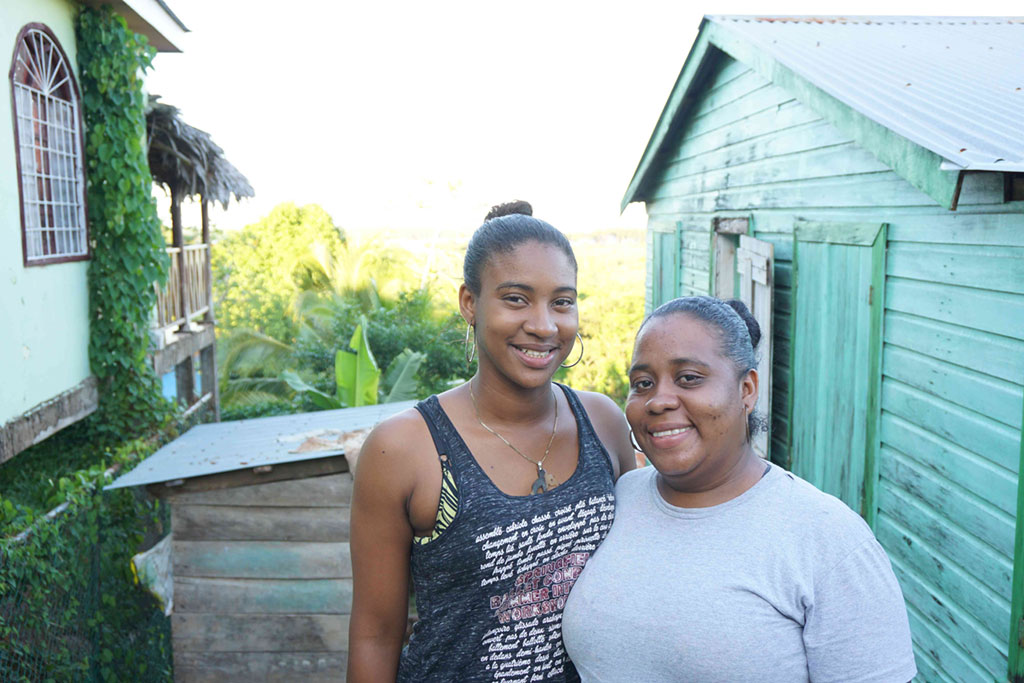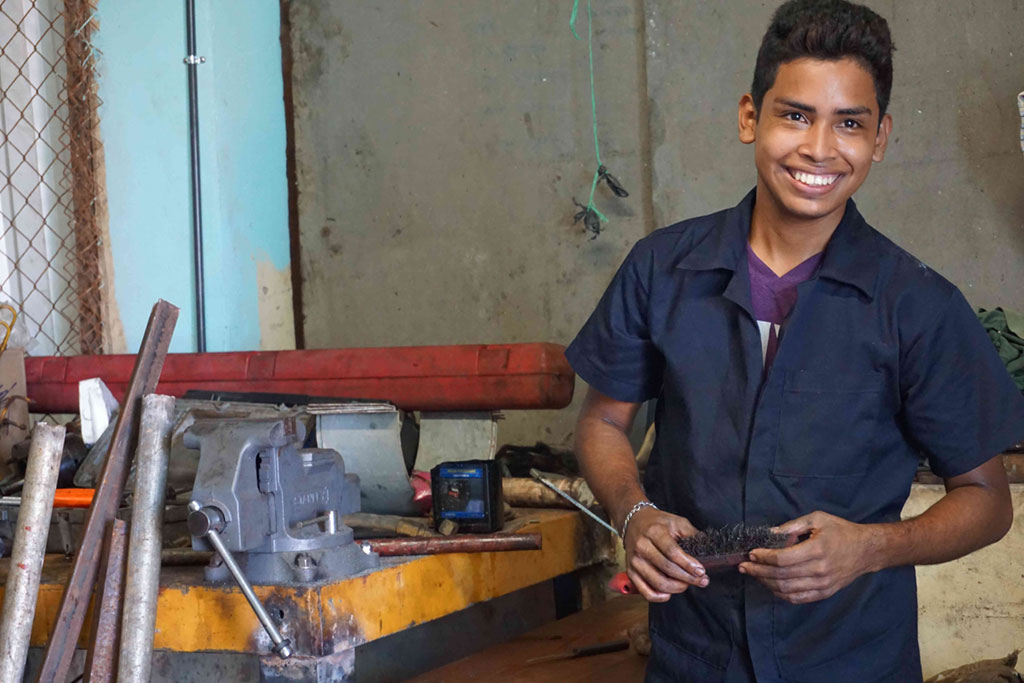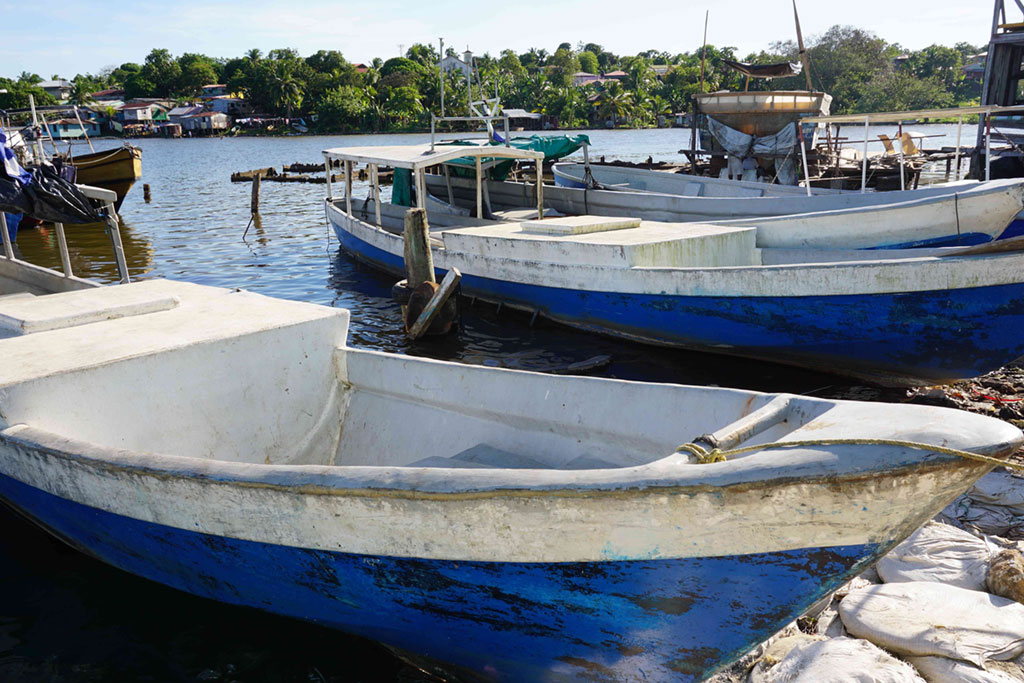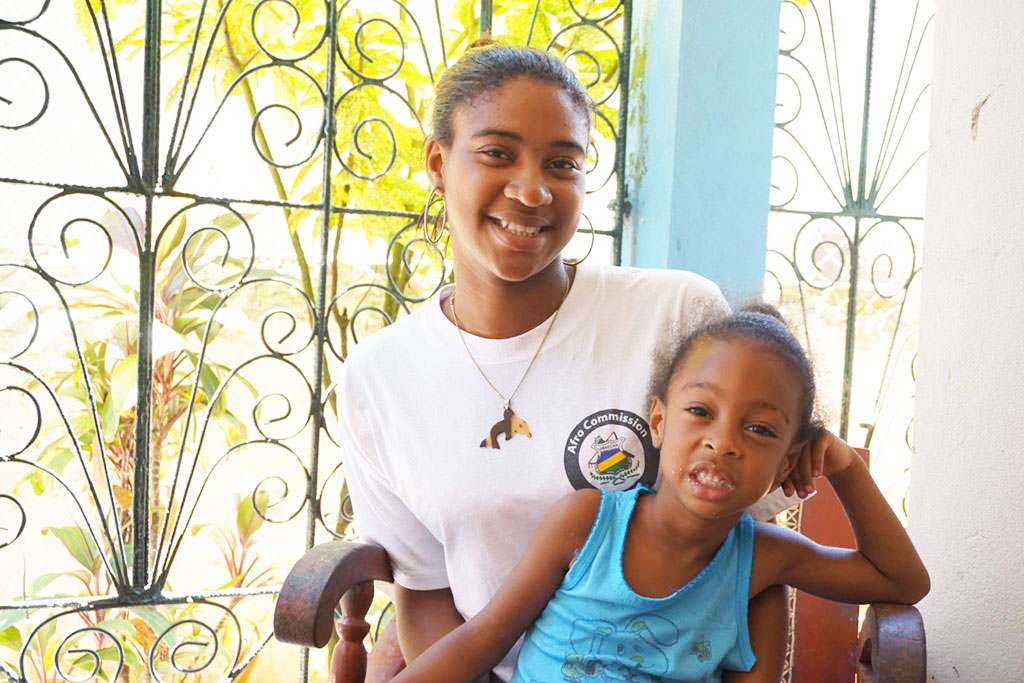BLUEFIELDS, Nicaragua – Crouched behind an engine on the back of a small motor boat, 19-year-old Soliange Pollack cranes to see the tiny screws she is twisting. With waves rocking the boat, keeping her tools steady is a challenge, but this is what she was trained to do.
Mother of a three-year-old daughter, Pollack was one of just two women in a 22-person outboard motor repair course. Today, as an intern for a small company that services water taxis and fishing boats, she is determined to prove that her skills go beyond the classroom and she can hold her own on the docks.
“The most difficult part about it is being where there’s only boys and they are like: ‘She can’t do that!’” And we show them that yes, we can,” she says confidently.

In Bluefields and more isolated areas along the Caribbean Coast, youth have few options for technical training and higher education and even fewer avenues for steady work. For women and minority youth, like Pollack, who is Creole, the educational and economic opportunities can be even harder to come by.
According to a 2015 United Nations Population Fund study, in the Southern Caribbean, 58.5 percent of the population ages 20 to 24, and 47 percent of the population ages 25 to 29, were underemployed. The same study found that 50 percent of youth ages 10 to 29 in the Southern Caribbean region live in poverty or extreme poverty.
Living with these odds, Pollack jumped into action when she learned of the opportunity to receive a scholarship for an outboard motor repair course through a youth workforce development program called the Technical Vocational Education and Training Strengthening for At-risk Youth project, known in Spanish as “Aprendo y Emprendo.”
“Me and my cousin said: ‘Yeah, why not? We can take a try!’” she says, referring to her cousin Edith, the other sole woman in the course. “First of all, I chose it to show the men that not only boys do this, girls also can do it. It something strange to see a girl working in these things. I wanted to make a change.”
To date, the project—which is funded by the U.S. Agency for International Development and implemented by Creative Associates International—has awarded technical and vocational scholarships to more than 349 young people along the Caribbean Coast. Among the 40 youth that already completed their trainings, 19 youth have gone on to participate in hands-on internships with potential employers.
Throughout its four years, the project will distribute 1,000 technical scholarships to vulnerable youth for courses in industrial electricity, small business administration, computing and other fields.
Closing the loop, connecting youth to internships and jobs
After youth complete their technical training, internships like the one Soliange Pollack is taking part in are a critical next step. The project aims to not only provide young people with technical and vocational training opportunities but also give them a running start on a career through hands-on internships and employment.
From the beginning, the Aprendo y Emprendo team works with employers to assess the skills they seek in potential employees and then collaborates with training institutes to tailor curriculum to meet those needs. One avenue for this cooperation is the Nicaraguan Network for Technical Education, a coalition of technical and vocational education and training institutes and private sector employers established with project support.
“This is a place where everyone is working together,” says Rose Mary Garcia, Chief of Party for the project. “We have to find opportunities to connect youth to the value chains that currently exist.”

Because of this partnership and preparation, graduates emerge from their courses with marketable skills and a better chance of landing and succeeding in a job.
Julio Hernandez has seen the benefits of hiring trained youth firsthand. As a ship supervisor at Central American Fisheries, he manages two recent graduates of the outboard motor repair course who are interns at the company: Randy Dixon and Juan Benitiez.
“It is not necessary to spend time and effort to transfer knowledge to them because they already have it, so we spend that time investing in other areas,” he says. “For example, if they have received the training to repair a motor, then they learn to repair a motor inside that is stationary. A motor outside is different than a motor inside. I don’t have to worry about explaining to them how a motor works.”
He adds that both interns show a discipline and respectfulness in the workplace that he hasn’t seen in young people who were not formally trained. These soft skills are a great asset for working on teams in crowded warehouses with heavy machinery and on the docks bustling with incoming and outgoing ships and seafood deliveries.
Dixon, whose father worked on motor repair for years, has always wanted to take up the family trade. But he says that unlike his father, who was untrained and learned on the job, he needed a certificate to compete in today’s job market. A lot of young people are looking for steady work, but not enough are qualified.
Coupled with his education, this practical training at Central American Fisheries is a stepping stone to a promising technical career.
“Participating in an internship is really important because I get the chance to gain knowledge in the areas, what I couldn’t learn in the classroom through theoretical knowledge, now I can learn it in practice,” says Dixon.
“My dad is happier than anyone [about my training],” he adds. “He has told me: ‘Now that you have this new certificate, you did it! This is great for us! You can come and work with me and we will be successful together!’”

Launching boats and dreams
For many of the 22 outboard motor repair graduates in Bluefields, the chance to intern at a place like Central American Fisheries is more than just the start of a career. It is a first, critical step toward fulfilling a larger dream.
At 26, Juan Benitiez is experiencing his first steady job as an intern at Central American Fisheries. The father of newborn son Marcos, Juan had trouble finding regular work and instead intermittently picked up informal construction jobs.
“It something strange to see a girl working in these things. I wanted to make a change.” Soliange Pollack, outboard motor repair course graduate and intern
“I felt happy when I found out I was selected to take the class and this internship. I never imagined that I could be able to learn about outboard motor repair, because that career is a long-term career,” he says.
Now, exploring the ins and outs of some 425 types of motors and learning how to keep them humming, he sees a way forward—a way to support his son and give back to others along remote and marginalized areas of the Caribbean Coast.
“My dream job is to be on a boat, to work on the sea. Specifically, I am looking forward to working for a church organization that is putting together a ship to deliver medicine in faraway communities,” he says.
For her part, Pollack also views her dockside internship as the beginning of something big.

Working hard to prove her skills in a male-dominated trade, she makes plans to one day open her own motor repair business, where she can be independent and help to create jobs for other young people in search of work.
“What I would like is to be the person that gives them the opportunity to show what they can do,” she says.
She hopes that her can-do attitude and drive for success will be an example not only to other youth but also to her young daughter.
“When she grows up, I hope she can just look at her mom and say: ‘My mom did it. She never let nothing hold her back. Whatever she wants to do she just pushed ahead and did it!’”
With reporting by Gretchen Robleto and Natalie Lovenburg
